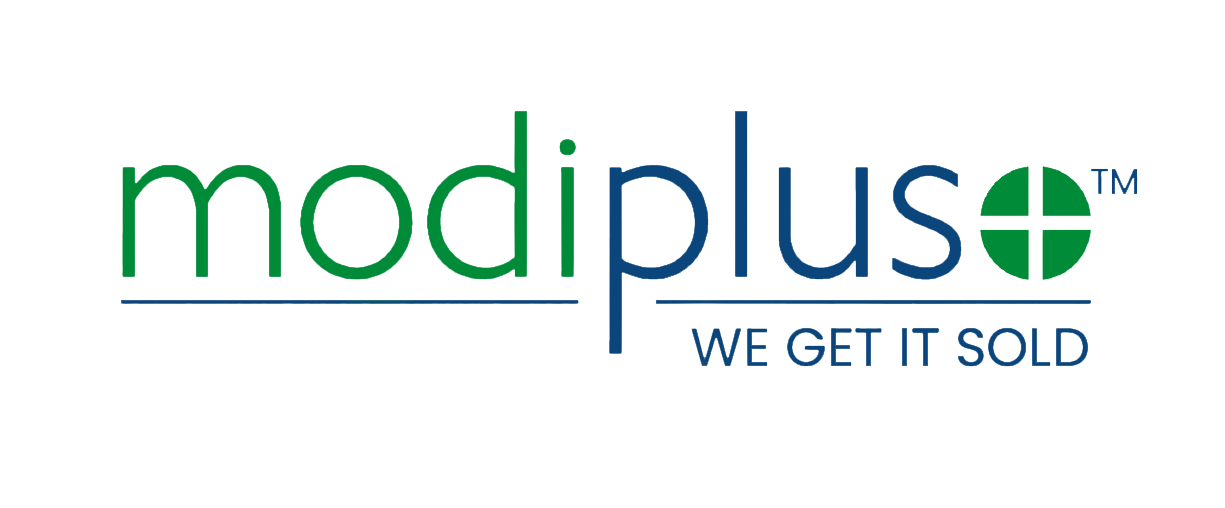First time buyers guide to identifying a target pharmacy
Modiplus • October 22, 2020
Finance experts Umesh Modi and Vinku Shah advise first-time buyers on the steps they should take to make the acquisition a smooth process…
We summarise some of the factors to consider when identifying a target pharmacy.
1) Location
It is important to note that a good opportunity rarely lands on your doorstep and therefore you may need to look further afield for the pharmacy that meets your requirements. Once you have identified that pharmacy, you should also research the environs of the target pharmacy for example whether there are any surgeries nearby, what is the closest competition, is there regular passing traffic, parking availability, any planned regeneration of the area, etc. All these factors although not exhaustive, can have an impact on the business and therefore should not be overlooked.
2) Dispensing base
A pharmacy with a higher number of dispensing items (usually 5,000 items dispensed per month on average and above) is generally attractive as it reflects the big patient base although such pharmacies tend to have a higher price but are also attractive for lenders provided the buyer has sufficient security, funds, etc. If the target pharmacy has a lower number of dispensing items, you should research thoroughly whether there is scope for increasing the numbers.
3) Growth potential
Turnover and profitability growth are important factors to consider when purchasing a pharmacy for example are there any services currently not being offered which could add to the turnover and in turn increase profitability. A review of the current overheads could also help identify areas where costs can be reduced for example is the pharmacy relying heavily on locums? Are there any leases for equipment and can these be renegotiated with better terms?
4) Turnover split
Usually the turnover would be made up of NHS remuneration, over-the-counter sales (OTC) and service income. OTC and service income usually has a greater margin than NHS turnover and therefore as a buyer one should consider whether there is scope for increasing these so that it adds to the overall profitability. One should also consider if there is scope to increase the NHS turnover – this would be the case where the percentage of electronic prescriptions to total items dispensed is below 90%.
5) Gross profit
The gross profit is calculated as turnover less the cost of buying drugs that have been sold and when taken as a percentage of sales, it ranges between 25% - 35%. A pharmacy with a gross profit of 25% usually indicates that the buying of the drugs is not efficient and there is room for improvement through scouring for deals with the suppliers. Higher margins are achieved through higher greater services income.
6) Staffing costs
Staff salaries, National Insurance Contributions and pensions are the highest overhead for community pharmacy, and these should be reviewed. The staffing costs should be generally 6 - 8% of total turnover for an owner managed pharmacy. Legal advice should be sought if staff are not to be retained post completion as redundancy costs may have to be paid.
7) Innovation
With the community pharmacy sector becoming more competitive, it is important to streamline repetitive processes to create time for the provision of value-added services which will increase the patient base and lead to long term growth. There are various innovative products available in the market for example investment in robots for dispensing which will also attract tax relief as well as improve the bottom line in the long run. Alternatively leasing of equipment could ease cashflow as well as reduce the corporation tax as the lease rentals will be tax deductible.
8) Premises
If the vendor owns the freehold of the premises from which the pharmacy operates, they may offer to sell it although it is a rare occurrence. In such a scenario, the buyer should get an independent valuation of the premises to ensure that they are not overpaying for the premises. If the premises are offered as leasehold, it is very important that the lease can be assigned to the buyer. Generally, the lease should be in line with the term of the mortgage if borrowing from a bank for example, if borrowing for a term of 15 years then the lease should have an unexpired term of at least 15 years. If there is a long enough lease in place already, then you should check on when the rent review dates are as you will need to reflect this in your projections.
9) Financing
It is important that the buyer has sufficient level of funding and security in place to complete the transaction. This would generally cover the purchase price, legal and professional fees for solicitors and accountants, valuation fees, payment for stocks if agreed separately, net assets in case of a company purchase, etc.
It is advisable to engage with a pharmacy specialist lender early in the transaction as they will be able to advise you on the lending requirements.

We trust you are enjoying the warm weather as we welcome you to our Summer Newsletter! Pharmacy market and selling activity The trend in the pharmacy sales market shows a continued activity with a mix of buyers and sellers, including large multiples and independent owners. We have seen large multiples disposing branches and there’s also a rise in first time buyers and small and mid-sized groups acquiring. Pharmacy contract and increase in funding The March 2025 funding deal looks promising and much needed boost for community pharmacies and a step in right direction compared to previous years. The Community Pharmacy Contractual Framework (CPCF) budget is to £3.073 billion for the 2025 / 2026 financial year, which will provide an uplift of over 30% compared to previous year. Additionally, an extra £215 million will be directed towards expanding existing Pharmacy First and other services. (Source: Community Pharmacy England) Outlook for pharmacies · Uncertainty in the budget – the upcoming autumn budget is expected to influence future activity in the pharmacy sales market. · Integration of technology and AI – technology, including AI and automation is playing a larger role in pharmacy operations and customer experience. · Growing role of pharmacies – pharmacies are taking on a larger role which may lead to further changes in the market. Factors influencing the sales market · Government policies – government regulations, particularly around funding and potential changes to CGT rules, can impact buying and selling decisions. · Economic growth and healthcare spending – increasing healthcare spending and an aging population are driving demand for pharmacy services. · Online pharmacy growth – the online pharmacy market is expanding, with companies like Pharmacy2U and others gaining market share. · Competition from online pharmacies – online pharmacies are becoming more popular, which may affect the traditional pharmacy model. Simplifying the sale of pharmacy and our checklist for a successful sale Selling a pharmacy can be daunting due to regulatory, financial and operational factors, but with the right strategy, we can help you streamline the process and avoid common pitfalls. Here is our recommendation for a smoother sale: - 1. Prepare early and get organised – collate key documents for the sale such as accounts, FP34s, VAT, returns, lease agreements, staff contract and compliance certificates. 2. Valuation – use pharmacy specialist agents to assess the value of your pharmacy based on profit multiples, dispensing volume etc (EBITDA workings). 3. Decide on the sale type – asset sale or company share sale where your accountant will be best to guide you. 4. Choose the right advisors – Broker helps you market the pharmacy and find a buyer. Please consider appointing a pharmacy specialist accountant and solicitor who have expertise to guide you through the whole sale process to completion. 5. Marketing the pharmacy – appoint a pharmacy specific broker such as Modiplus who will market your pharmacy in confidence and discreet. All buyers are vetted for funding and sign our confidentiality agreement allowing them to share sales information only with the bank, their accountant and solicitor. 6. Due diligence – you will be asked to use digital data rooms to share financials, FP34s, supplier contracts etc. Be transparent to disclose everything upfront to avoid delays or warranty claims. 7. Handle property efficiently – if leased, ensure that there’s at least 10 years left or obtain an extension. If freehold owned, prepare to sale the freehold or grant a new lease to the buyer. Please ensure lease terms meet buyer’s lender requirements. 8. Navigate NHS and GPhC requirements – For an asset sale, buyer must apply for transfer of NHS contract which usually takes between 2 to 4 months. For a share sale, no NHS approval is needed, however, notify NHS and GPhC of director / superintendent changes within 30 days. 9. Completion and handover – sign a Sale Purchase Agreement (SPA) or an Asset Purchase Agreement (APA), and hand over to the buyer. Other exciting news As we continue to grow, we are pleased to announce that our associated company Silver Levene was acquired by Xeinadin Group , a top 20 accountancy and business advisory firm in the UK. We highly recommend their pharmacy team of accountants with over 35 years of experience providing specialist accounting, tax and other advisory services to community pharmacies and pharmacists. For more information, please contact the pharmacy partners Mr Vinku Shah or Mr Shivam Modi on 020 7383 3200. Looking further ahead, we will be at The Pharmacy Show at NEC Birmingham on 12 and 13 October 2025 . If you are thinking of selling or buying a pharmacy, or looking for specialist pharmacy accountancy and tax advice, our team will be happy to discuss options with you at stand number M20 located next to the business theatre. Last month we participated with our associated company Silver Levene – A Xeinadin Company in the annual 10km London Legal Walk. The charity raised c£1m to support communities’ most vulnerable people and we thank you for your continued donations to support such a good cause. Legal and financial advisors Please engage a pharmacy specialist legal and financial advisor who will guide you through the process and assist you with any complex issues such as tax, legal contracts, etc. If you would like to sell/buy a pharmacy, need accounting or tax advice through our associated company Silver Levene – A Xeinadin Company, please contact us on 020 7383 3200. We have been providing specialist accounting and tax advisory services to community pharmacy for over 35 years. Your query will be directed to the right person. Silver Levene - A Xeinadin Company offers fixed price packages for accounting and tax services as well as valuations, cashflow and profit forecasts, raising loan finance, due diligence and accountancy work for asset and company sale transactions. Thinking of selling or buying? If you would like a free valuation or to talk about how you could achieve a fantastic price for your pharmacy, please do contact us on our direct dial number 020 7380 3446 and ask for Sanja . We would welcome the opportunity to have a chat with you. We look forward to hearing from you. This article is based on current legislation and practice and is for guidance only. Specific professional advice should be taken before acting on matters mentioned here.

Welcome to our Winter Newsletter! Pharmacy market trend and buyers’ appetite If you are thinking of selling your pharmacy, there is still a demand for pharmacies across the country as the market remains buoyant. The pharmacy market has seen an increase in the number of pharmacies entering the market and completed sales. This is driven by economic pressures, fiscal policies, lack of funding, and exit of larger multiples from the market, such as Lloyds Pharmacy and Boots, which has led to the rise of independents and consolidations. The appetite remains strong from the first-time buyers, with independent and smaller chains the most active in the pharmacy acquisitions. Valuation calculations We have also seen the valuation of pharmacies improving, and on average we are achieving a goodwill price of 85p to 90p in £1 of turnover for standard hour contracts. Demand for pharmacies with a turnover of more than £750k to £1.5m with healthy profits is particularly attractive for the first-time acquisitions or an existing independent operator looking to expand. Below is a range of estimated valuations, if you are looking to sell: -

Welcome to our Summer Newsletter and we trust that you are enjoying the late summer weather! This summer has been extraordinary so far, full of sporting events such as football, tennis, cricket and the Olympic games! We have been very busy in the last quarter, whereby we have seen the first-time buyer appetite remain strong. Similarly, we have seen an increase in the number of sales enquiries of smaller pharmacies while others are holding off awaiting the outcome of the new funding and success of Pharmacy First scheme. On average we are achieving goodwill price of between 85p to 90p in £1 of turnover at present. The average profit margin has shown an improvement to 32% despite medicine shortages. Data from Pharmacy First (NHSBSA) The launch of the Pharmacy First has gone off with a positive start, it has been very encouraging to see so many patients benefiting from this scheme, and your exceptional efforts in delivering these services have been commendable. However, we note that monthly payments are still critical, and concur that it is completely unreasonable for pharmacy to be penalised financially for the NHS’ failure to drive public and GP referrals. The NHS Business Services Authority (NHSBSA) has released figures for the Pharmacy First Service covering the period of February to April 2024 as follows: -


